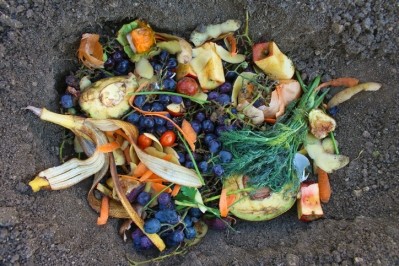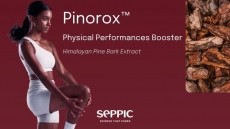DolCas tackles liver and vascular health with botanical extracts: Study

The novel nutraceutical, introduced in the US by DolCas last fall, offers 17% flavonone polyphenol and 5% cynaropicrin content when blended with micronized bergamot pulp fibers. The company said it is the first solvent- and excipient-free extract to exhibit proven liver support in steatosis.
Bergacyn is a blend of botanical extracts from the Italian bergamot citrus fruit and wild-variety of Italian Cynara cardunculus leaf.
Sustainability
“Bergacyn is a blend of bergamot polyphenols from the juice and pulp and cynaropicrin, a sesquiterpene from Cynara cardunculus leaf. The bergamot fibers and juice are actually upcycled materials, leftover from the procurement of precious bergamot essential oils, from the citrus peel. These were essentially waste products of the perfume industry that the manufacturer took particular interest in as they paralleled folk medicine traditions of the region,” Dr. Shavon Jackson-Michel, Director of Medical & Scientific Affairs explained to NutraIngredients-USA.
Steatosis, or fatty liver disease, is common in middle-aged Americans. Major risk factors include obesity and type 2 diabetes. The condition is largely attributable to lifestyle choices. Jackson-Michel said he thought the antioxidant properties of bergamot would pair uniquely with the cholertic properties of cynara to offer liver support, but the team uncovered much more.
“Surprisingly, in the manufacturer’s attempt to fully embrace the circular economy concept, the reconversion of abandoned plots throughout the region would uncover an older botanical variety of artichoke leaf that could offer substantially higher quantities of the anti-inflammatory active, cynaropicrin without the need to over-purify their active. This, along with other interesting findings throughout the R&D process would substantiate the synergism the manufacturer posited would be availed by this innovative blend, and elucidate the multi-action effect Bergacyn has shown on the many different targets of the fatty liver process, including systemic inflammation, glucolipid control and vascular impairment.”
Study details
The 16-week double-blind, placebo-controlled study was published in The Journal of Traditional and Complementary Medicine.
The study enlisted 80 subjects, who were divided into four treatment subgroups: placebo, 600 milligrams of Bergacyn, 600 milligrams of a non-proprietary bergamot extract blend, and a 600 milligram cynara extract blend.
Findings
The results found the blend for digestive and metabolic support may support for liver steatosis, inflammation, and oxidative stress in type 2 diabetes.
Liver fat accumulation regressed two levels – from severe to mild – in the Bergacyn group as compared to placebo (p<0.05).
Bergacyn stood out by substantially reducing both AST (aspartate aminotransferase) and ALT (alanine aminotransferase), liver damage enzymes that define the more destructives stages of NAFLD. ALT and AST levels were reduced by approximately 15 and 18 points, respectively, (p<0.05) in the Bergacyn group, compared to a 10-point average reduction in the stand alone groups (with no changes in the placebo group).
The Bergacyn group also recorded the greatest quantitative increase in antioxidation and fibrosis intervention (via reduced scar tissue mediators) and anti-inflammatory action (p<0.001).
The company said the array of benefits found in the study support evidence of Bergacyn’s multi-pronged approach in supporting non-alcoholic fatty liver disease (NAFLD) and the diabetic complications that come along with it.
Jackson-Michel said the findings “substantiate the synergism the manufacturer posited would be availed by this innovative blend, and elucidate the multi-action effect Bergacyn has shown on the many different targets of the fatty liver process, including systemic inflammation, glucolipid control and vascular impairment.”
A second study substantiating Bergacyn’s targeting of steatosis in obesity-driven Metabolic Syndrome is currently in review and slated to be published in the coming weeks.
Source: Journal of Traditional and Complementary Medicine
2020 Feb 8. https://doi.org/10.1016/j.jtcme.2020.02.004
“The synergistic effect of Citrus bergamia and Cynara cardunculus extracts on vascular inflammation and oxidative stress in non-alcoholic fatty liver disease”
Authors: V. Musolino et al.
















